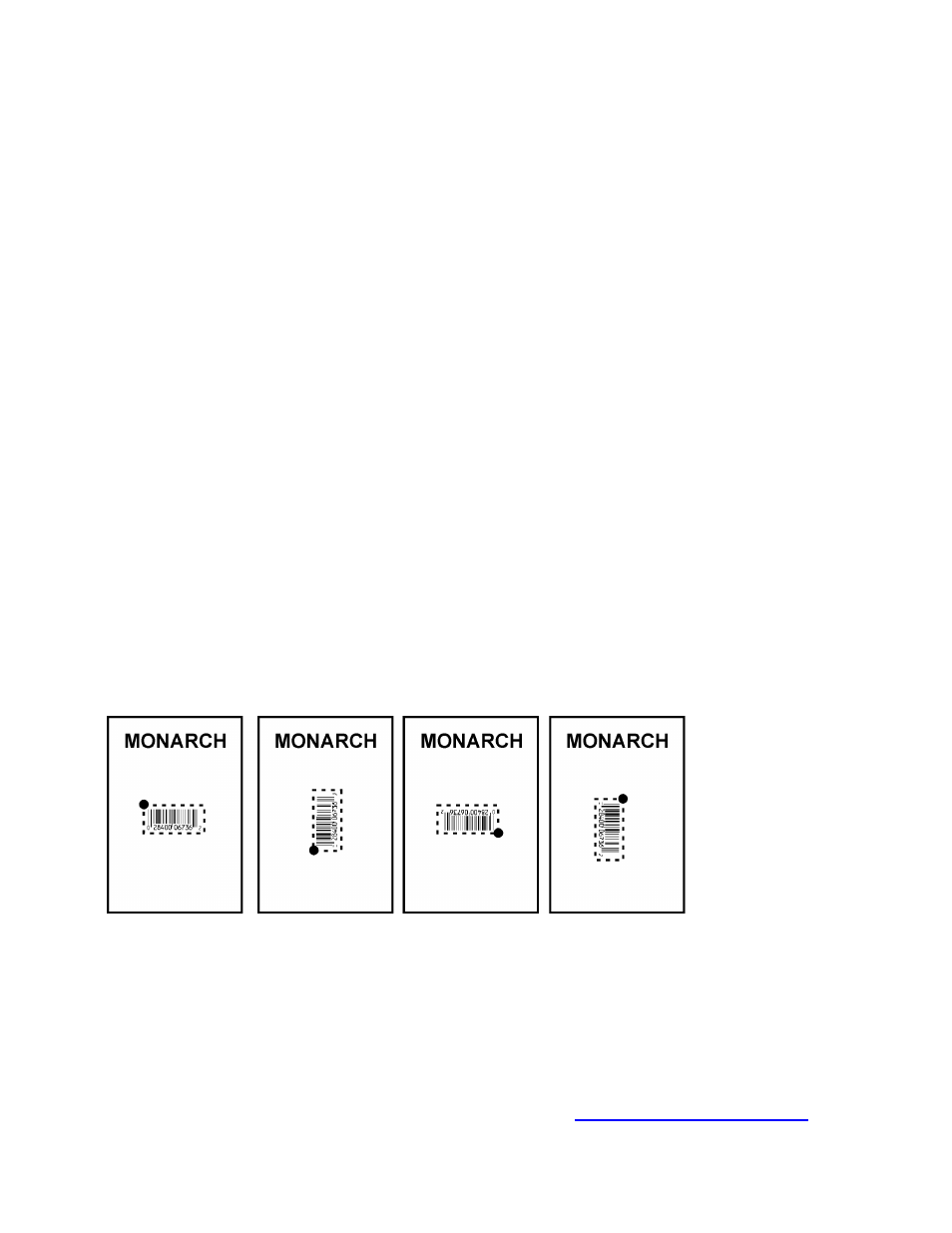Defining the barheight tag (required), Defining the type tag (required), Defining the orientation tag (optional) – Avery Dennison Pathfinder 6057 LNT Programmer Manual using XML User Manual
Page 32: Defining the options tag (optional)

3-12 LNT Programmer’s Manual
Defining the BarHeight Tag (Required)
The BarHeight tag defines the bar code’s height (in selected units).
Valid values include: An integer or float greater than zero and less than the <ImageHeight>
minus the <Origin> value in selected units.
It contains the following attribute: units.
Syntax
<BarHeight units=”value”>value</BarHeight>
units
Unit of measure. Options:
Inches
Inches
MM
Millimeters
Pi xels
Pi xels (default)
Example
<BarHeight units=”Inches”>0.50</BarHeight>
Defines the bar code’s height as 0.50 inches.
Defining the Type Tag (Required)
Defines the bar code type for this field.
Valid values include: Any Unicode string of less than 256 characters, including:
upca, upca+2, upca+5, upce, upce1, upce+2, upce+5, ean8, ean8+2, ean8+5, ean13, ean13+2,
ean13+5, i2of5, itf, code39, code93, code2of5, codabar, nw7, msi, code128, code128a,
code128b, code128c, pdf417, micropdf417, maxicode, code16, data matrix, quick response, qr,
postnet, gs1databar, gs1, or rss.
Syntax
<Type>value</Type>
Example
<Type>upca</Type>
Defines the bar code type as upca.
Defining the Orientation Tag (Optional)
The Orientation tag selects the rotation of the bar code in degrees.
Valid values include: 0, 90, 180, and 270. The default is 0.
Syntax
<Orientation>value</Orientation>
Example
<Orientation>90</Orientation>
Rotates the bar code 90° on the label.
Defining the Options Tag (Optional)
The Options tag defines any options supported by the bar code’s <type>. For more information
about each bar code’s supported options, see Chapter 4, “
” for more
information.
0 Rota ti on
90 Rot ati on
180 Ro tati on
270 Ro tati on